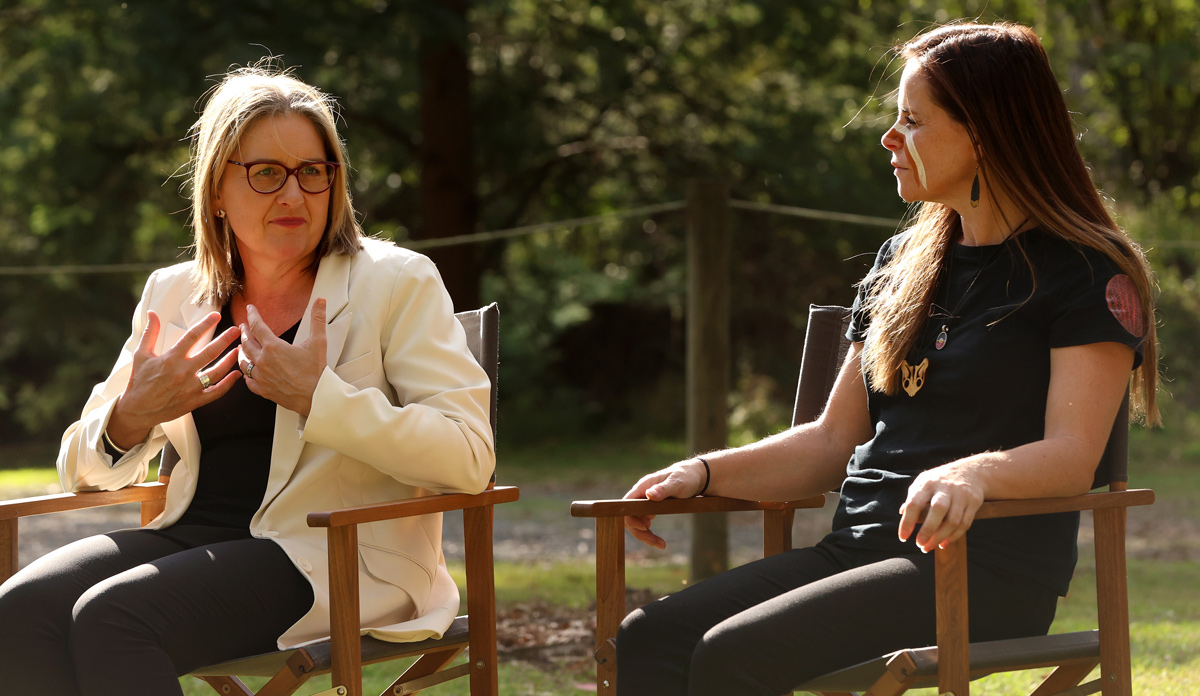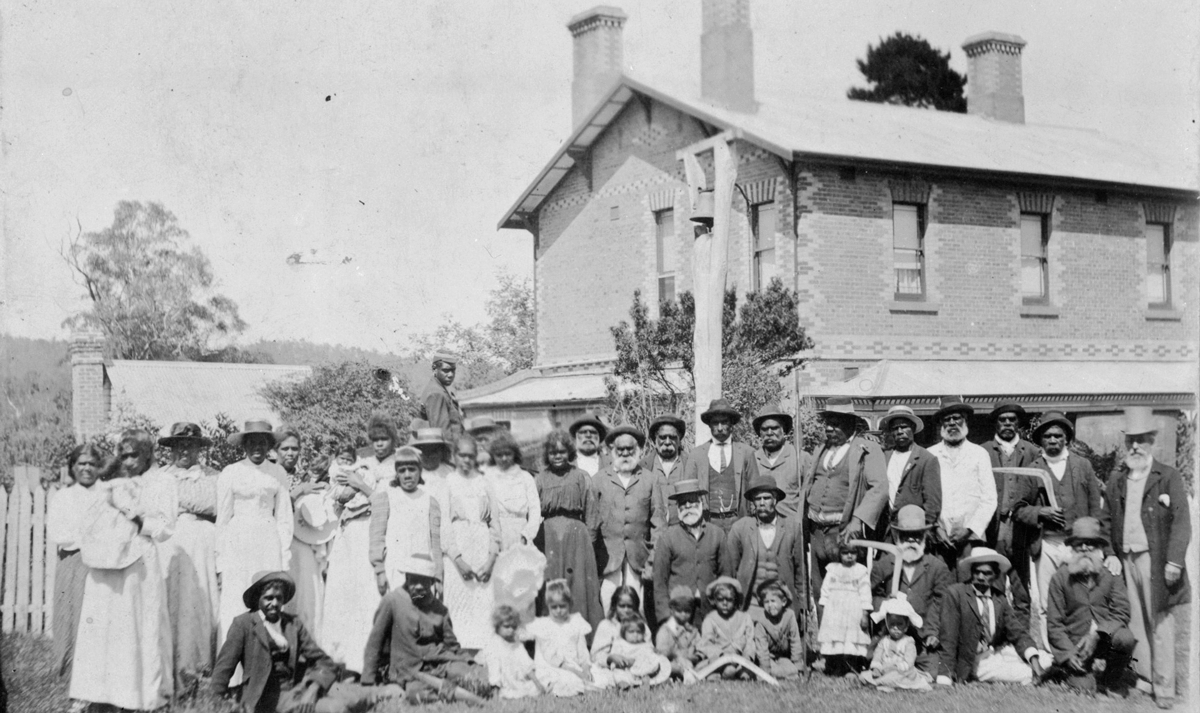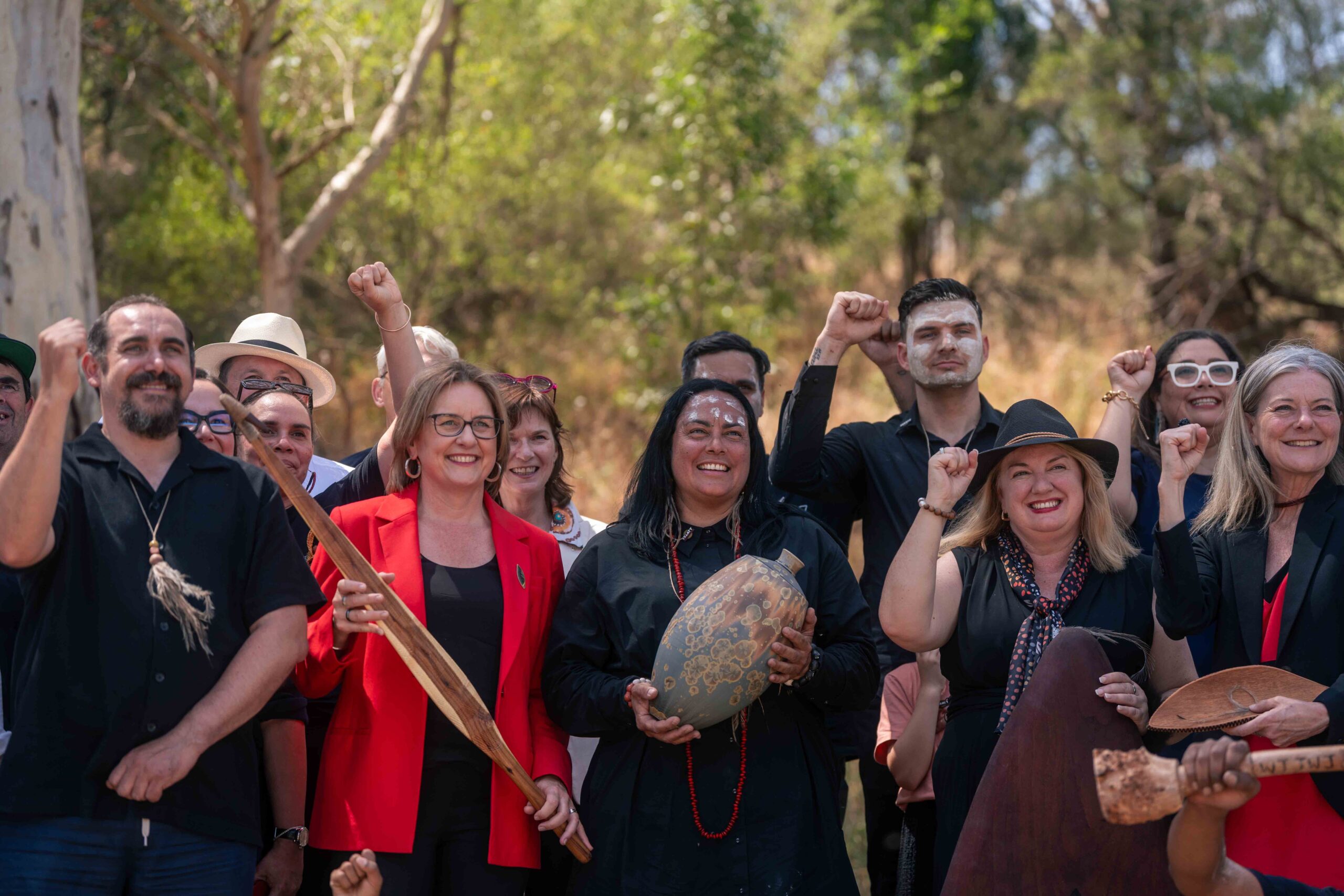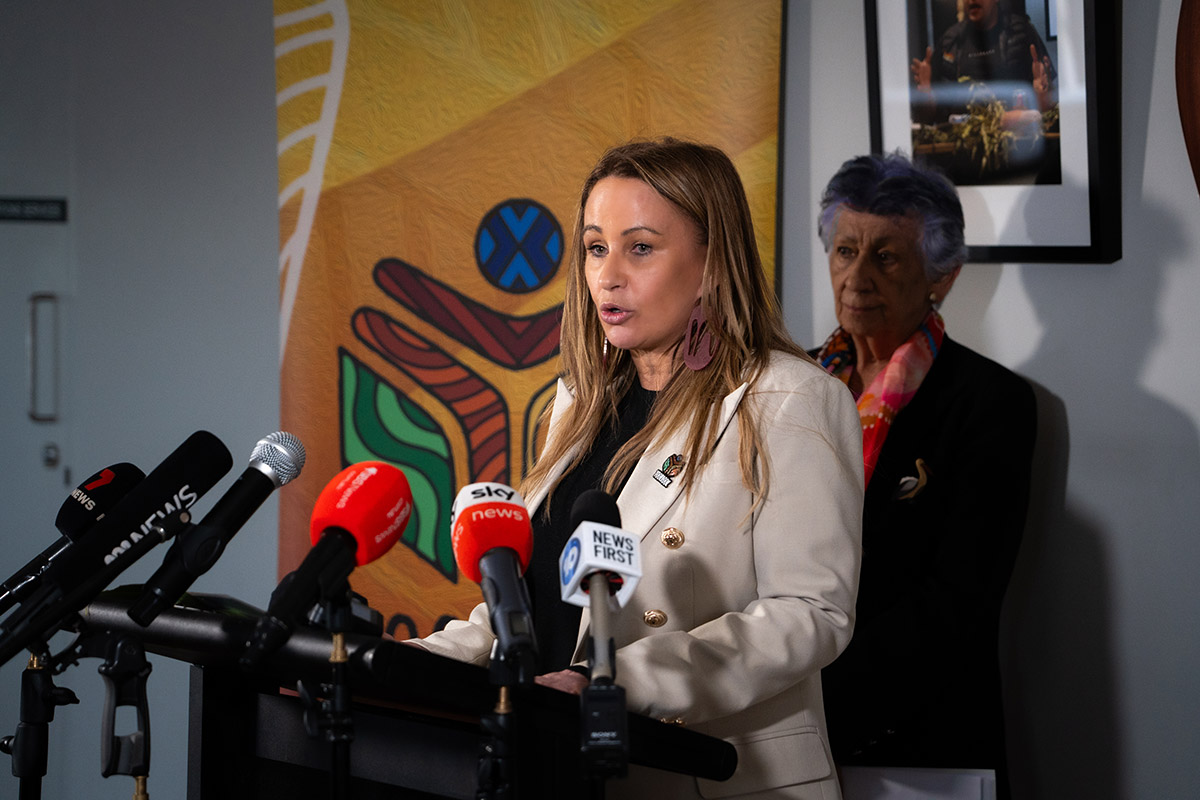
Take a look through the United Nations Declaration on the Rights of Indigenous Peoples and you will immediately see how profound it is in outlining fundamental rights for Indigenous peoples across the world.
At its core it acknowledges Indigenous peoples’ inherent right to self-determination – the right to pursue First Peoples’ own vision of economic, social and cultural development.
It is the first internationally recognised act of self-determination, with Indigenous Peoples from around the world establishing a universal framework of minimum standards for their own survival, dignity and wellbeing.
Australia’s very own First Peoples leader, the late Lowitja O’Donoghue, was among those Indigenous peoples from around the world who worked tirelessly for decades to develop it.
The Declaration, endorsed by the United Nations 17 years ago on 13 September 2007, and by Australia 2 years later, is the world’s most comprehensive international instrument on the rights of Indigenous peoples.
For Yoorrook Justice Commission, the first formal truth-telling process into historical and ongoing injustices experienced by First Peoples in Victoria, the Declaration, along with community, is at the heart of everything we do.
Since Yoorrook’s inception three years ago, we have been guided by this commitment to First Peoples and the principles contained in the Declaration.
The truths Yoorrook has heard since its establishment mirror what we heard 17 years ago. This work is an opportunity for all Victorians to listen, learn and make change so that the Declaration can be fully realised.
Yoorrook is leading the way to self-determination so that we can show the world that it can be done.
The Declaration recognises the right of Indigenous families and communities to share responsibility for bringing up and educating our children.
Yoorrook has heard extensive evidence around this, and made recommendations to end injustice against First Peoples children and families, including:
- Raising the age of criminal responsibility to 14.
- Prohibiting routine strip searching of children in Victorian youth justice centres.
- Substantially increasing investment in prevention services to keep young First Peoples out of the child protection system.
Because we know Victoria’s child protection system, not designed for First Peoples kids, often takes them away from their kin and culture and becomes a fast-track to the justice system.
Article 3 in the Declaration says Indigenous peoples have the right to self-determination…. to freely pursue their economic, social and cultural development.
This informs Yoorrook’s commitment to self-determination, which in essence, means First Peoples having the capacity to control their own destiny.
Yoorrook has heard First Peoples’ witnesses and organisations call for genuine self-determination in the child protection and criminal justice systems.
Numerous government witnesses have also spoken about how self-determination should underpin or be at the centre of reform.
The evidence we have heard shows you get better outcomes when you put First Peoples in control of the issues that affect their lives.
In the Yoorrook for Justice report, the overarching recommendations made by Commissioners were for self-determination to be realised within Victoria’s child protection and criminal justice systems.
Self-determination has continued to be a major concern for First Nations peoples and consideration in our further hearings into land, education, health and housing, and the recommendations that will come from these.
How the recommendations are implemented, and the extent to which self-determination will be fully realised across the state, will depend largely on the treaty negotiation process soon set to begin in Victoria.
The UN Declaration speaks to treaties as being the basis for stronger partnerships between First Peoples and State. This ultimately benefits us all.
Treaty negotiations will soon commence between the First Peoples Assembly of Victoria and the Victorian Government.
Yoorrook will play its role in identifying some matters for negotiation. This is part of our reason for being.
Along with establishing an official public record and shared understanding of the impact of colonisation, and the ongoing diversity, strength and resilience of First Peoples, we are here to make recommendations for healing, system reform, practical changes to laws, policy and education, and matters to be included in future treaties.
With the UN Declaration’s universal principles designed by First Peoples and the evidence we have heard from community, we are guided in our truth-telling work and have a framework for assessing whether systems and policies work for First Peoples and what needs to change.
There is still time for you to be part of this historic work and make your voice heard.
We are calling on all Victorians to play their part in the truth-telling process by making a submission.
Join us in helping build a shared understanding of the true history of Victoria, and through it, a better future for us all.
